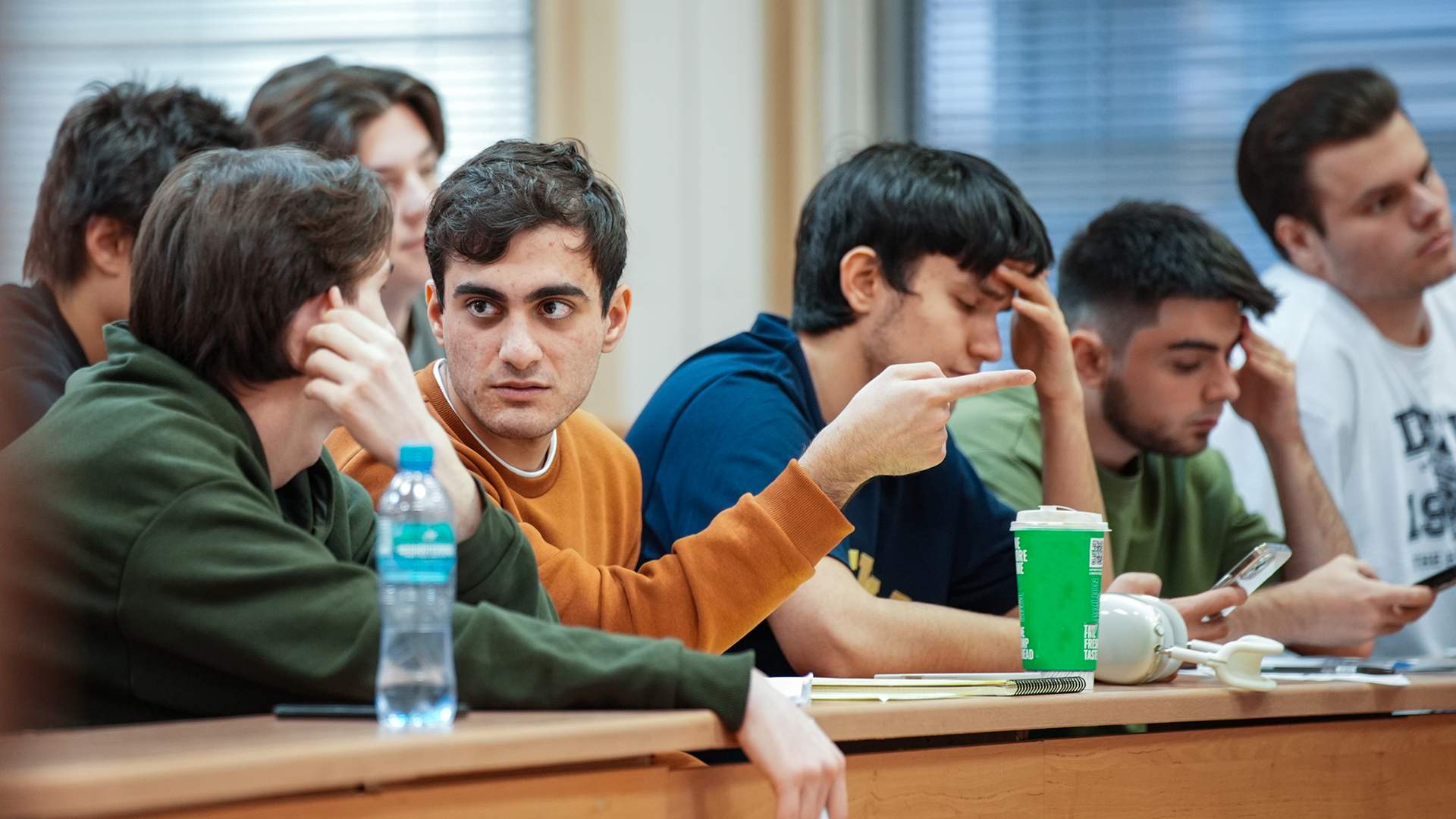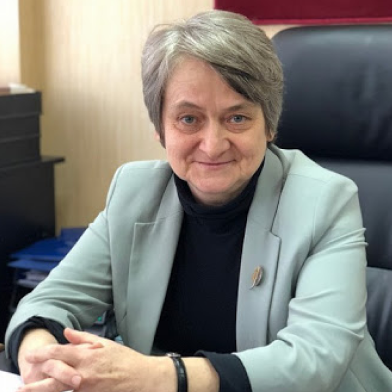Language barrier: university rectors are being sued for admitting foreigners

In January and February, criminal cases related to the enrollment of foreign citizens were opened at four universities. The defendants were four rectors who were accused of accepting foreign students who were either enrolled but did not study, or simply could not speak Russian in order to master the material. Experts believe that criminal cases may continue, especially since some activists have already begun to pay attention to similar facts in other universities. Meanwhile, the Russian authorities are developing new rules for the admission of foreigners to universities — without the necessary knowledge of the Russian language, it will be impossible to study, but it will be possible to take preparatory courses. For more information, see the Izvestia article.
They won't let you into universities without knowledge of the Russian language.
Rossotrudnichestvo told Izvestia that the requirements for passing the Russian language proficiency exam are currently being developed.
— It is assumed that without the necessary level of proficiency in Russian, it will be impossible to study at Russian universities, — the department explained. — Students will be able to choose one of two options: to study Russian at a preparatory faculty in Russia or to study in their own country, take an exam and receive a certificate of language proficiency.
Russian Russian Cooperation has already launched the first pilot project for the study of the Russian language at the preparatory faculty in Africa: the sub-faculty has been operating for two years on the basis of Russian houses in Ethiopia, Tanzania and Zambia.
Which university rectors were arrested
This week, heads of IT companies, industrial enterprises, deputies, journalists and public figures of the Ulyanovsk region sent a collective open appeal to Federation Council Speaker Valentina Matvienko and Chairman of the State Duma Vyacheslav Volodin in connection with the arrest of the rector of Ulyanovsk State Technical University Nadezhda Yarushkina. In February, she was remanded in custody for two months. The signatories consider this measure of restraint disproportionate to the circumstances of the case and her age — the woman is 62 years old — and ask for mitigation of the decision. A week earlier, the Russian Association of Artificial Intelligence stood up for Nadezhda Yarushkina.

This is one of a number of criminal cases against rectors of Russian universities related to foreign students. Yarushkina and three other UlSTU employees were detained, according to the investigation, for the fact that from 2022 to 2025 they "unreasonably enrolled foreign students who did not speak Russian and were unable to master the educational program," although funds were transferred from the budget of the Russian Federation to the university account for each of them. The case was initiated under Part 3 of Article 285 of the Criminal Code of the Russian Federation ("Abuse of official authority, entailing grave consequences").
In January, Igor Vorotnikov, rector of Nizhny Novgorod State Agrotechnological University, was detained and also sent to jail. He is suspected of having "unreasonably enrolled foreign students in budget places" from 2023 to 2025, although they "did not intend to master the educational program and attend training sessions." Nevertheless, he sent forged documents confirming the students' education to the appropriate authorities in order to artificially increase the performance indicators.
On February 25, the rector of Karachay-Cherkess State University, Tausoltan Uzdenov, was suspected of forgery — he allegedly forged documents on university studies for foreign citizens whose term of stay in the Russian Federation expired from 2021 to 2022. This was done to "artificially increase the income of the educational institution headed by him."
The next day, Svetlana Sazhina, acting director of the Lesnikovsky branch of Kurgan State University, was arrested. She is suspected of organizing illegal migration and abuse of office. The investigation believes that a number of foreign students of the Lesnikovsky branch were enrolled in the university fictitiously: they were registered, but did not attend classes, but instead worked in various companies in the region.
On this wave, activists in Yekaterinburg accused the leadership of Ural State Medical University (UGMU) of illegally enrolling foreign students. Allegedly, most of the 400 students who arrived from India do not speak Russian and are unable to assimilate the material, although money from the regional and federal treasury is spent on their education. The university, however, stated that since 2019, the university has been implementing educational programs in a bilingual form — using English as an intermediary language. Indians study in a foreign language, undergoing intensive training in Russian.
Why do international students not speak Russian?
Evgeny Bely, Doctor of Technical Sciences, author of the Telegram channel "Science and Universities", connects the chain of criminal cases with the intention of the state to restore order in this area, and believes that they will continue. But the choice of links in this chain, he believes, could well have been accidental.
Speaking about the case of Nadezhda Yarushkina (Evgeny is a former lecturer at another Ulyanovsk university), he noted that he had personally known her for 25 years, and he had never had doubts about her integrity.
"I don't think the situation with international students at Ulyanovsk State Technical University is fundamentally different from what is observed at many regional universities," he told Izvestia. — I believe that she has become a victim of KPIs for international students and obligations to meet these indicators. It is unlikely that we are talking about the personal selfish motives of the rector.
Evgeny notes that the problem with international students exists in many regions.
Russian Russian is an excellent language for students, but now there are students who have an equally poor knowledge of both Russian and English," he said. "It is almost impossible to effectively transfer special knowledge to such students. But more often, in my opinion, we are talking about a systemic problem when university administrations are placed in conditions of the need to fulfill obligations for international students.
Irina Abankina, a professor at the HSE Institute of Education, pointed out that the proportion of international students is one of the indicators in monitoring the effectiveness of universities. Let's add that the national development goals of Russia by 2030 aim to increase the number of international students to 500 thousand. Now there are just over 350 thousand of them.
There are also indicators related to enrollment in budget places, says Irina Abankina. Not filling them means getting a reduction in the number of places and, consequently, funding for the next year.
"Universities are unable to fill budget places with Russian applicants, and foreigners are sent to them,— the Izvestia interlocutor believes. — Moreover, in monitoring the effectiveness of universities, there are indicators for the average score of applicants for the Unified State Exam. In order not to enroll students with too low scores, the university management accepts foreigners who do not participate in the unified state exam system and do not spoil the statistics when calculating the average score.
A source familiar with the admission system for foreign students to Russian universities also noted that some universities recruit applicants who do not speak Russian in order to fulfill their plans.
"Universities have to make compromises to meet their targets,— the source told Izvestia. — Even after pre-university courses, the level of the Russian language is insufficient to study it. Therefore, in parallel with the main program, they continue to be trained in Russian during the first year in order to at least bring them to the b2 level. This is how the system has always worked.
Why should foreigners enter universities fictitiously
Irina Abankina notes that for many immigrants from the former Soviet republics, university often becomes a cover for migration, an easy way to legalize. Agreements on mutual recognition of educational documents help this. Therefore, criminal cases, she believes, are primarily related not to knowledge of the Russian language, but to other violations. The expert believes that such large-scale inspections have not been carried out in this area before.
The source also admits that there are universities that are openly enrolling foreigners illegally. But there are also cases when the recruiters themselves, through whom admission to Russian universities takes place, do not fully understand the applicant's intentions: is he going to study or just wants to be able to stay in Russia legally. The responsibility for this lies with the university. He believes that the university, for its part, should take measures that will allow it to convince the inspection authorities that everything possible has been done to find out who exactly is coming to them.
It should be noted that at the end of last year it became known about the intention of Rossotrudnichestvo and the Ministry of Education and Science to create a unified register of agencies that advertise domestic education and attract foreign students to universities. This idea arose against the background of a number of criminal cases against unscrupulous firms.
Rossotrudnichestvo told Izvestia that work on creating a unified register of recruiting agencies, which will include bona fide companies, is currently underway through the Ministry of Education and Science. According to the Izvestia source, the working group has already formed a final document, and it will be published in the coming weeks or months.
"It is important for us that there be as few intermediaries as possible between the student and the university," Rossotrudnichestvo said. — For this, it is necessary that students receive more information about the possibilities of Russian education. In countries where there are Russian houses, it is easier to do this. We organize exhibitions of Russian education and invite universities to our sites so that future students can get all the information first-hand. It is more difficult where we are not represented. Recruitment agencies operate there, and, unfortunately, they are not always in good faith. The registry will reduce the number of fraud cases and systematize their activities.
Переведено сервисом «Яндекс Переводчик»









